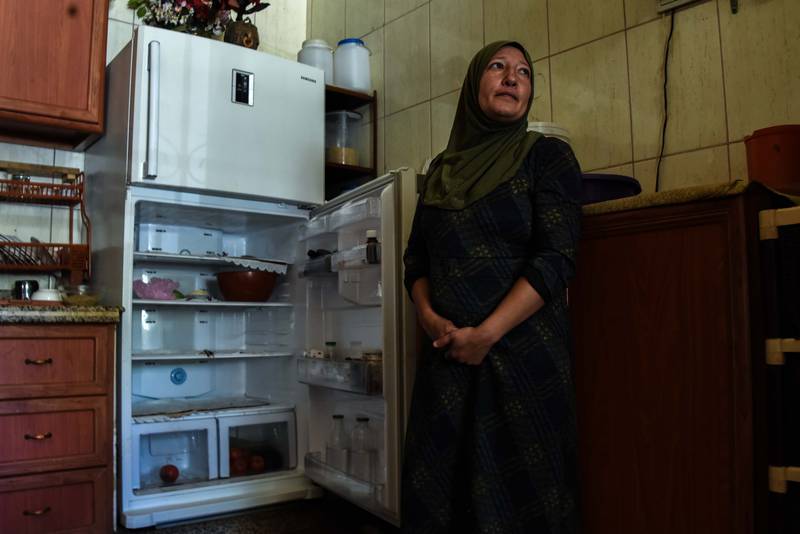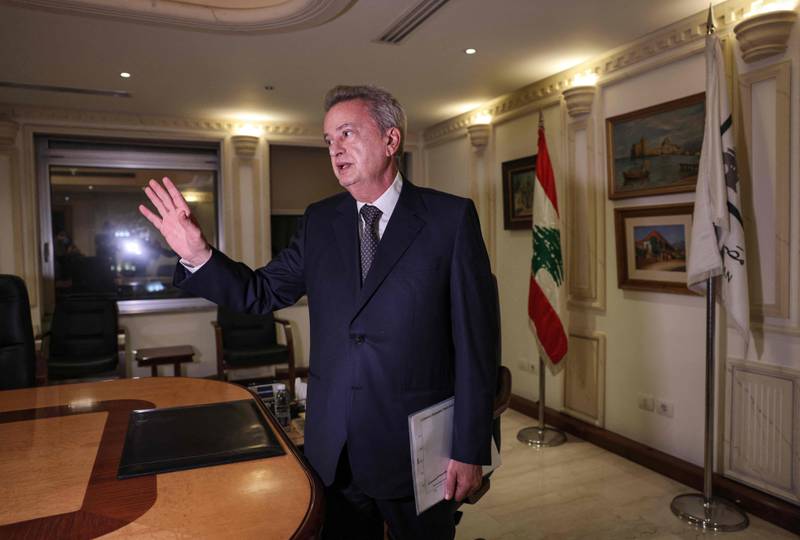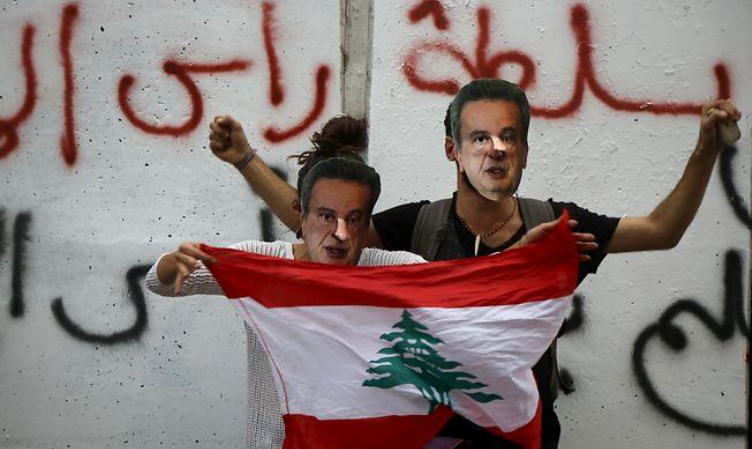
Airport Highway Corruption Files
21 February 2022Sunniva Rose
Beirut – Feb 15, 2022
The whereabouts of Lebanon’s Central Bank governor were unknown on Tuesday after State Security raided three locations in an attempt to detain the controversial figure but were unable to find him, a source within the agency told The National.
State Security, one of Lebanon’s security branches, sent officers to Riad Salameh’s office in Beirut as well as to his private homes in the town of Rabieh, a 30-minute drive from Beirut, and in Safra, a coastal town farther north.
“We tried to locate him but could not find him,” the source said.
The governor’s whereabouts are unknown and The National’s attempts to reach him via a press attache went unanswered.
State Security were attempting to detain the governor based on a February 1 subpoena issued by Judge Ghada Aoun to appear for questioning after he failed to attend three hearings. She has also issued a travel ban against him.
Ms Aoun’s subpoena is in relation to a complaint filed against Mr Salameh by a group calling themselves The People Want to Reform the System, who accuse the bank governor of embezzlement, wasting public funds, illegal enrichment and money laundering, according to media reports.
After his failure to attend the hearings, Ms Aoun told Reuters on Tuesday that she had indefinitely extended the subpoena against Mr Salameh. A senior judicial source said that State Security’s raid was an attempt to bring Mr Salameh in by force for questioning but that he was not under arrest.
Hassan Bazzi, a lawyer and a member of the group, told The National that “Mr Salameh is now on the run”.
Mr Bazzi accused the Internal Security Forces, another organisation that carries out day-to-day police work, of protecting the governor. The State Security source rejected Mr Bazzi’s claim.
In a statement, Ms Aoun said that she had written to the ISF’s directorate asking whether there was a decision to “not harm” Mr Salameh.
Once considered among the best central bank governors in the world, Mr Salameh, 71, has come under intense scrutiny since the collapse of Lebanon’s banking sector in 2019.
Lebanon’s economic crisis – in pictures

The financial crisis has pushed more than three quarters of the population into poverty and seen the Lebanese pound lose about 93 per cent of its value.
Mr Salameh, who was appointed governor of Banque du Liban in 1993, denied any wrongdoing and said his personal fortune came from his past salary as an investment banker at Merrill Lynch and from his inheritance.
He has previously publicly accused Ms Aoun of political bias.
She is widely perceived as being close to President Michel Aoun, a harsh critic of Mr Salameh. Yet the Central Bank governor also enjoys high-level support from elsewhere in the political elite, including from Prime Minister Najib Mikati.
A second Lebanese judge, Jean Tannous, is investigating Mr Salameh’s wealth in Lebanon, prompted by Switzerland’s request for judicial co-operation requested in November 2020. Mr Tannous has faced difficulties and was recently barred at the last minute from raiding five Lebanese banks in connection with his investigation.
Mr Salameh is also under pressure from European courts.
Germany, Luxembourg, France, Liechtenstein and Switzerland are investigating him on suspicions of money laundering.
Tuesday’s failed arrest prompted Lebanese Twitter users to ridicule Mr Salameh.
Halim Shebaya, director of a network of constitutional law experts in the Middle East and North Africa region asked if Mr Salameh was “pulling a Carlos Ghosn” in reference to the French-Lebanese former Nissan head.
A French-Lebanese citizen, Mr Ghosn fell from grace after a Japanese corruption investigation before in 2019 he was smuggled out of Tokyo and back to Beirut in a music box.









